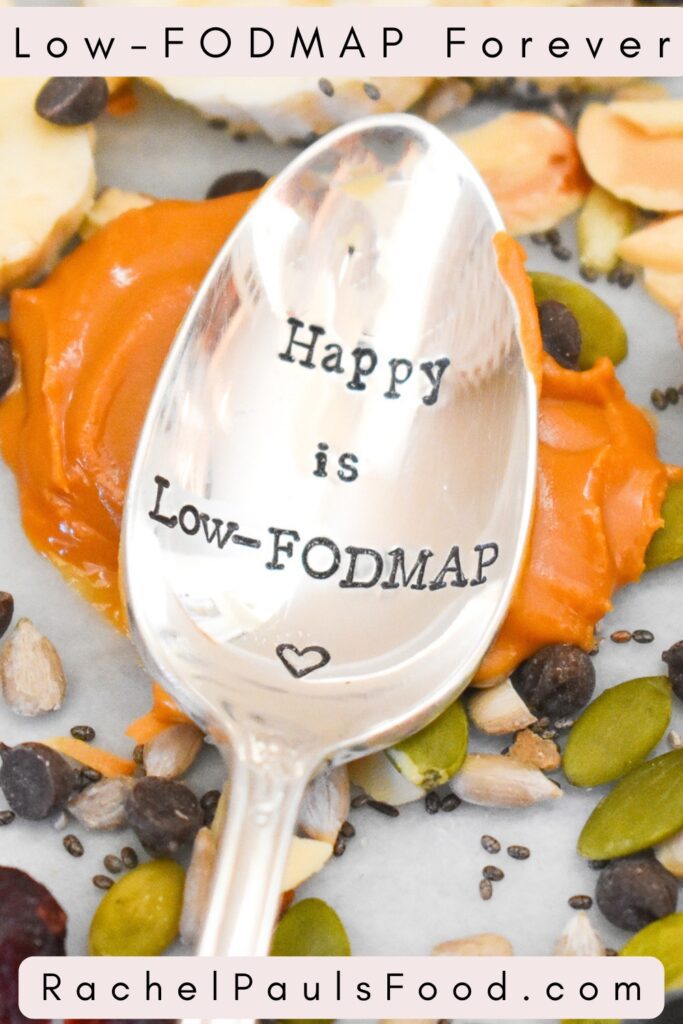
I’m a Medical Doctor, with IBS. I have been following a low-FODMAP diet since October, 2012. And I never plan to stop.
Yup, you heard that right! I plan to stay on a low-FODMAP diet FOREVER.
I know you are probably thinking…that’s not right! That’s NOT what I’ve been told! She’s WRONG.
What kind of doctor is she?!?
MY doctor/dietitian/nutritionist/Google told me that the low-FODMAP diet is ONLY intended for 4-6 weeks. If you stay on it, it isn’t healthy for your body or your gut.
O.K. Take a breath. Hear me out…
First off, you are CORRECT.
That is what we are ALL told.
But what we aren’t told is…what do you do if you CAN’T control your symptoms without a low-FODMAP diet?
Are you doomed to an unhealthy life for staying on the low-FODMAP diet?? NO!!
I’m here to set the record straight. For many people, following a low-FODMAP diet is a transitional plan, in order to get their bodies feeling better, and sleuth out what foods they can and can’t tolerate. That’s great for them!
For others, following a low-FODMAP diet is not necessarily temporary. It’s more of a lifestyle change.
But, let me clarify… the long term program I describe is a ‘modified’ low-FODMAP diet. That means you PERSONALIZE your version of the low-FODMAP diet, based on what you tolerate. For me, this is modestly different from the traditional low-FODMAP diet. For you, it could be more extensive.
Here are three reasons experts recommend transitioning away from a low-FODMAP diet for long-term living (and my counter-plan to these)
1. Low-FODMAP eating is restrictive
This was absolutely true around 2006 (when the diet was first introduced), but is less of an issue today. FODMAP testing performed by Monash University in Australia (available on their handy Monash app) has shown there is a much larger variety of food choices that we can enjoy while staying true to a low-FODMAP diet. It is not definitely NOT as restrictive as it used to be!
That being said, if you like going out to eat, or need to travel a lot, then staying low-FODMAP may be more challenging for you. I highly suggest trying to see if you tolerate small amounts of wheat, onion, and garlic to make your life more flexible.
2. Eating a variety of foods is healthier
AGREE. Variety is the best approach. But low-FODMAP does not have to mandate a less varied diet.
Did you know that studies have shown that people with IBS (in general, not on FODMAP) tend to follow diets that are low in quality AND diversity? The low-FODMAP diet in one study was associated with a greater intake of Vitamin B12 than following one’s habitual diet, for a group that already had IBS!
So, maybe the issue isn’t whether we are following low-FODMAP at all. IBS patients just tend to be more food-averse.
In my opinion, the perception that the low-FODMAP diet is ‘not varied’, is based on antiquated teachings and food lists (about 10-15 years old). Today, we have SO much more information about the MANY foods that are considered reasonable to consume, provided a low-FODMAP portion size is eaten.
Additionally, many of the studies evaluating low-FODMAP diet ‘variety’ based their data on just a 4-week period of time. Do YOU remember the first four weeks you followed a low-FODMAP diet? I do! I probably ate the same 5 or 6 foods each day! I was SO afraid of eating anything back then, since I didn’t want my symptoms to come back.
Obviously, that is different from how I eat today (have you seen my blog?)!
3. The low-FODMAP diet harms the gut balance aka ‘microbiome’
Here’s the deal. The microbiome is all of the organisms that live in your intestines (bacteria, fungi and yeast). This particular array of organisms are unique to you, and help you digest food, mount an immune response, and much more.
We know that having a ‘diverse’ microbiome is good. But we do NOT know what the microbiome ‘should be’. It changes, from country to country and time to time, because it changes based on the foods we eat!
What we also know, is that ‘probiotic’ bacteria are healthy for us. You have probably heard about eating probiotics to help your digestion, right? Well, probiotic bacteria in our guts ‘like’ prebiotic fiber. Prebiotic fiber comes from foods that are NOT digested well (like onion, garlic and asparagus, for example).
In other words, eating foods that are ‘prebiotic’ is helpful to make the ‘probiotic’ bacteria in your gut happy and improve your overall microbiome diversity.
That’s a mouthful, isn’t it?! (it is also a gut-ful).
Basically, BECAUSE many of the highest FODMAP foods are known to be prebiotic, scientists came to the conclusion that avoiding them is BAD for our microbiome. However, this was an assumption based on opinion, not fact.
The truth is, there is no real data to support this assumption, when it comes to people on the FODMAP diet. In fact, a recent study on subjects that followed a ‘personalized’ low-FODMAP diet for a year showed good IBS control and NO harmful change to gut microbiota.
And get this: Prior to 2005, work surrounding FODMAPs suggested that eating a diet very high in FODMAPs could actually create problems in the microbiome resulting in inflammation, and could possibly LEAD to inflammatory bowel disease. This was super important since FODMAPs were literally being added to our foods (inulin and chicory root) in baby formulas, feeding solutions for people in the hospital, energy bars, etc. You have seen the labels since you are on the lookout for these additives! The point is, we DON’T REALLY KNOW ENOUGH YET.
Here is my important message to help you in the low-FODMAP journey, if you want to stay ‘modified’ long-term:
Eat Low-FODMAP Foods that are ALSO ‘Prebiotic’
Makes complete sense! There are many low-FODMAP foods that can help sustain your microbiome. I eat these foods ALL THE TIME!
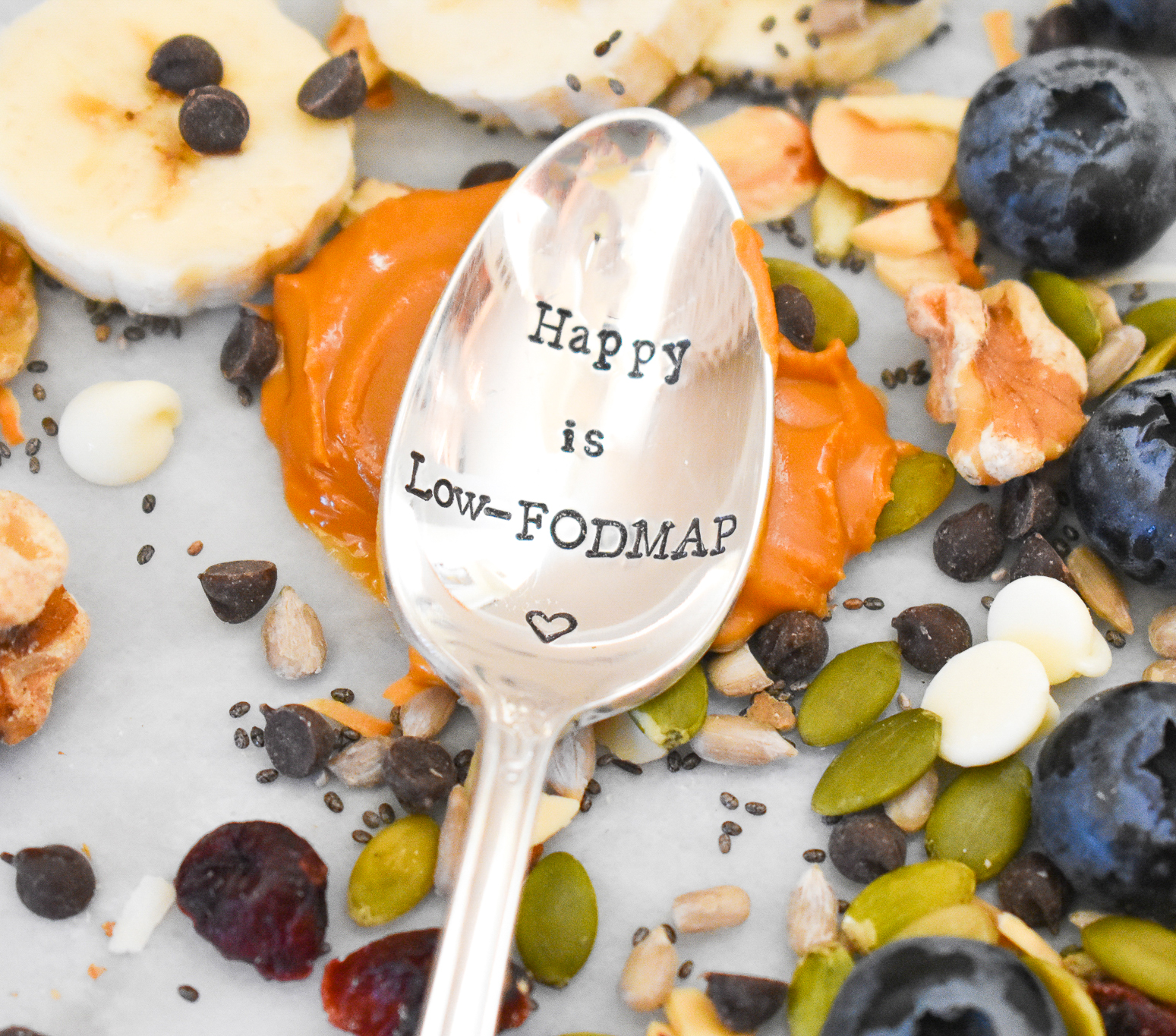
Here are some examples:
Fruits and Vegetables:
- Jicama (75 g per serve)
- Bananas (unripe is best, 100g per serve)
- Citrus fruits (navel orange, 130 g per serve- NO FODMAPs detected)
- Seaweed (5 g per serve, NO FODMAPs detected)
- Plantains (145 g per serve, ONLY TRACE FODMAPs)
- Passionfruit (46 g per serve)
- Carrots (no FODMAPs detected)
- Potatoes (cooked and cooled is best for resistant starches to be highest; no FODMAPs detected)
Grains:
- Oats (1/2 cup raw per serve)
- Millet (1 cup cooked per serve)
- Amaranth (1/4 cup puffed per serve)
- Buckwheat groats (3/4 cup cooked per serve)
- Quinoa (1 cup cooked per serve)
Nuts and Seeds:
- Flaxseeds (1 tbsp per serve)
- Hazelnuts (15 g per serve)
- Almonds (12 g per serve)
- Chestnuts (168 g per serve)
Here are some of my recipes to enjoy these foods:
- Low-FODMAP Rice Quinoa
- Low-FODMAP Chai Overnight Oats
- Low-FODMAP Blueberry Almond Overnight Quinoa
- Low-FODMAP Seeded Granola
- Low-FODMAP Oatmeal Chocolate Chip Energy Bites
- Low-FODMAP Peanut Butter and Banana Baked Oatmeal Bars
- Low-FODMAP Roasted Carrots with Everything Bagel Seasoning
- Low-FODMAP Intensively Addictive Granola
- Low-FODMAP Candied Orange Slices
- Low-FODMAP All- American Potato Salad
- Low-FODMAP Toasted Oat Granola Butter
- Low-FODMAP Banana Bread Breakfast Cookies
…or check out over 600 low-FODMAP Recipes on my blog. IBS-friendly!
- Want an easy to follow overview of the low-FODMAP diet? See my FREE low-FODMAP Happy Gut Guide!
- Here is my Low-FODMAP Five Day Meal Plan
- My FIRST COOKBOOK was October 6, 2020! Click here to order the BEST low-FODMAP Cookbook and IBS Plan ever!
- Or read all about Reintroduction, in my second book, and my blog Let’s Talk about Reintroduction: Phase Two of the Low-FODMAP Diet.
Be healthy and happy,
Rachel Pauls, MD

References:
Gibson PR, Halmos EP, Muir JG. Review article: FODMAPS, prebiotics and gut health. The FODMAP Hypothesis revisited. Aliment parmacol Ther. 2020;00:1-14.
Staudacher HM et al. Nutrient Intake, Diet Quality, and Diet Diversity in Irritable Bowel Syndrome and the Impact of the Low FODMAP Diet. J Acad Nutr Diet. 2020 Apr;120(4):535-547.
Su H, et al. Effects of Low-FODMAPS Diet on Irritable Bowel Syndrome Symptoms and Gut Microbiome. Gastroenterol Nurs. 2019 Mar/Apr;42(2):150-158.
Staudacher, et al. Long-term personalized low FODMAP diet improves symptoms and maintains luminal Bifidobacteria abundance in irritable bowel syndrome. Neurogastroenterol Motil. 2021 Aug 24;314241. Epub ahead of print.



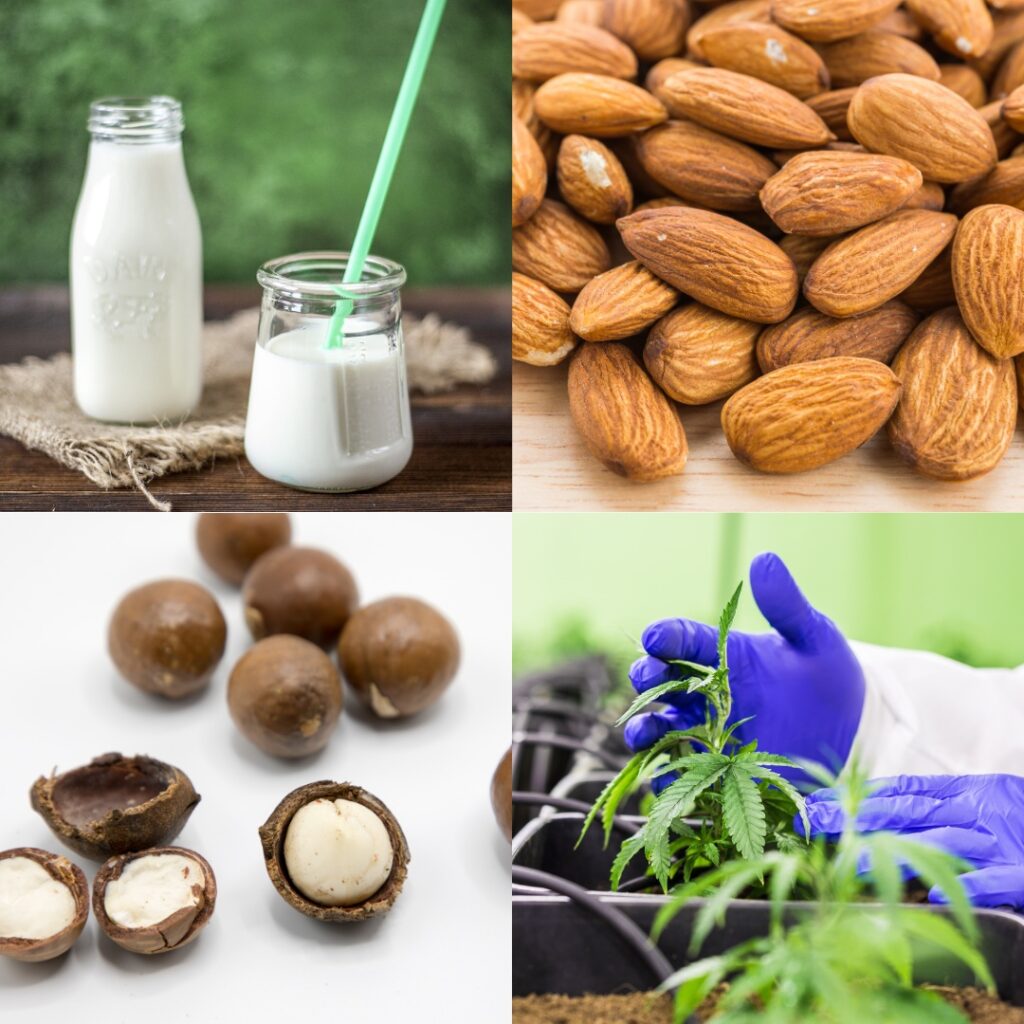
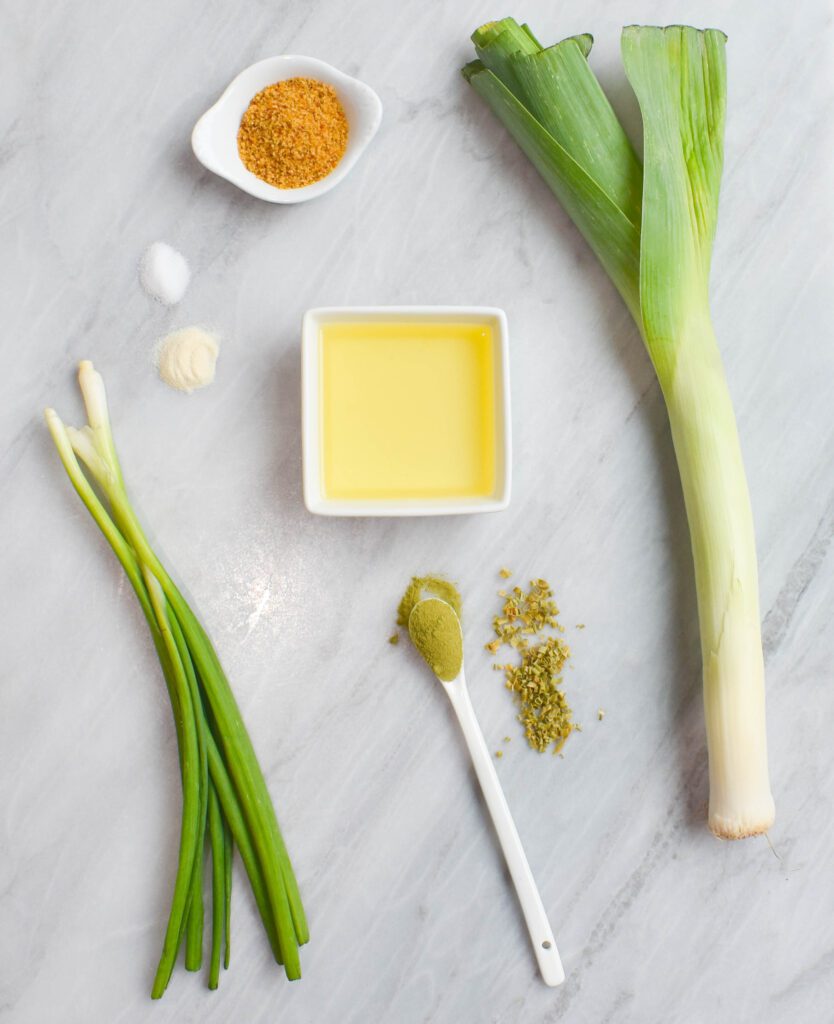
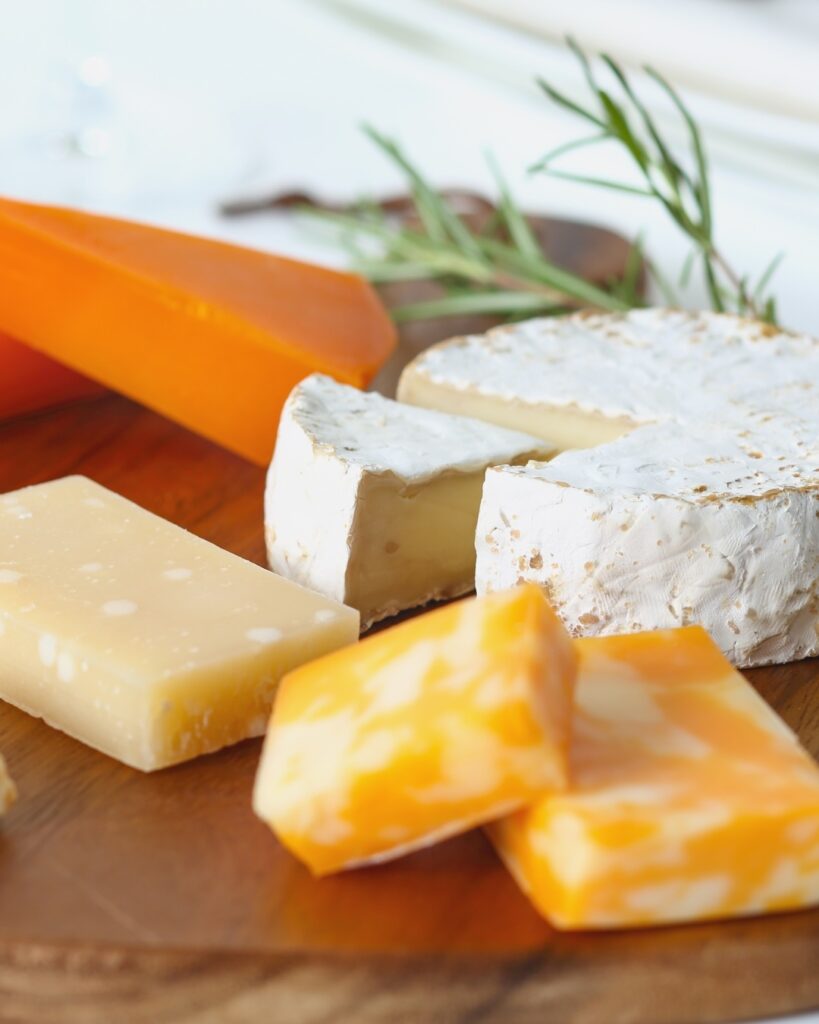
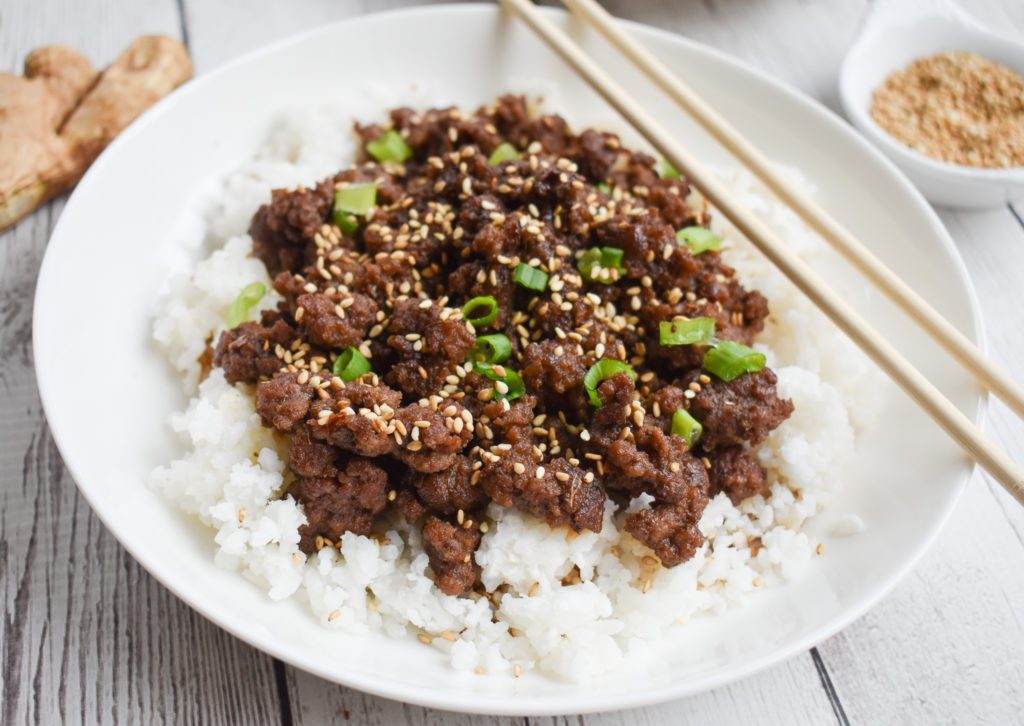


3 Responses
Thank you
Thank you very much for your beautiful recipes I do not know I will be eat them .I have aGi problem I can not eat any things beside rice and chicken I am very sad I used to eat almost every things since March every things change I was at the Hospital two times I still have same problem I Stayed at the bath room all day Please tell me what can I eat Thank you jean
Hi Jean,
So sorry to hear about your health issues. Since it sounds like you may have been ill, I suggest contacting your GI physician, primary care physician or other specialists first to make sure there isn’t something still going on. I also think a dietitian is very useful in navigating food tolerances. Best to you.
~Rachel